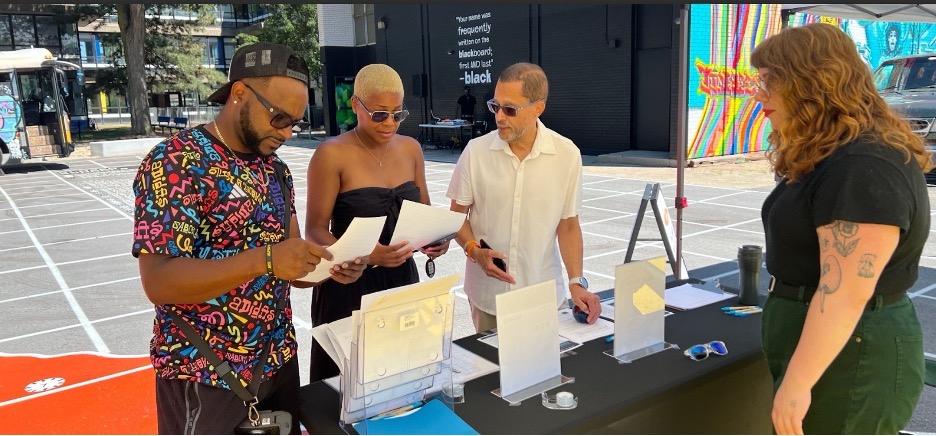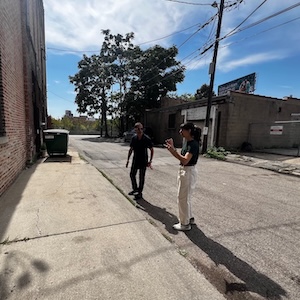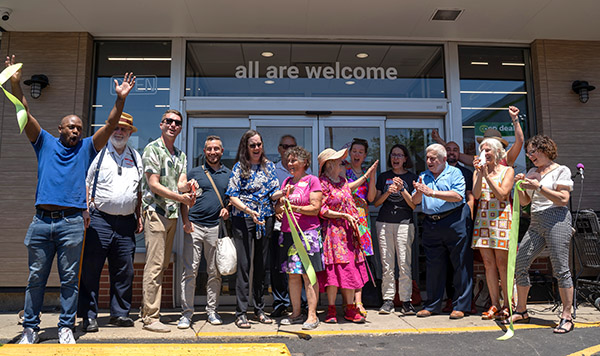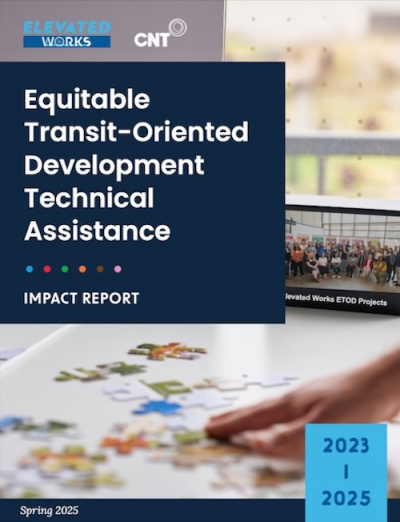
We and the American Lung Association are part of the federally funded STELLAR project to promote equitable transportation electrification and decarbonization in communities. About a year into the work, we're finding that expanding access to clean transportation looks different in each STELLAR community. In Bronzeville, as this profile highlights, it’s all about bringing together tourism, technology, and transportation.
“We innovate around tourism, transportation and technology,” says William “Billy” Davis, co-founder and general manager of JitneyEV, and executive director of Bronzeville Community Development Partnership . “Our mission is to use renewable energy as an economic development tool as we transition to a cleaner, greener economy.”
The roots of the group’s work go back more than a decade to local leaders’ work to earn recognition of Bronzeville as a National Heritage Area—from receiving generations of Southern Blacks during the Great Migration, to the home and church of Civil Rights martyr Emmett Till, homes of Muddy Waters and Ida B. Wells and many more. The National Park Service recognized the area from 17th to 71st streets as the Bronzeville Black Metropolis National Heritage Area in December 2022.
Around the same time in the wake of the COVID-19 pandemic, Davis and other leaders of Bronzeville Community Development Partnership (BCDP) participated in an innovation incubator looking to address local transit challenges, like last-mile-mobility, and economic circularity. Bronzeville has tourism anchors like McCormick Place and Wintrust Arena on the north, White Sox to the west, DuSable Museum and the Obama Center Campus on the south. But tourists and visitors tended not to linger — or spend their money locally — after visiting these attractions.
Davis and other leaders looked to change that, initially by designing a Mobility as a Service (MaaS)-style transportation system that would “incentivize customers to frequent the stops between the anchors,” Davis said. “Our concern was that entertainment dollars spent in our community were not circulating and supporting the many restaurants, eclectic shops and cultural institutions comprising Bronzeville.“We evolved,” Davis says, “recognizing what was missing in the community.” In addition to building the local economy by welcoming tourists, they wanted to make the community better for residents in other ways, too. As the group continued researching, Davis says, “all sorts of stuff started becoming obvious to us.”
They gained a deeper understanding, for example, of the negative impact of past urban planning and policy that led to fewer amenities in Bronzeville than equivalent communities in other parts of the city and about pollution near I-94 that slices through communities along the neighborhood’s western edge, among other challenges.
One of the big missing amenities: support for electric vehicle transportation and a lack of charging infrastructure. Partnering with national groups like Greenlining the Block and Forth’s Towards Equitable Electric Mobility (TEEM), Davis and Jitney EV created a new program, the EVInstitute. (Center for Neighborhood Technology is also a member of TEEM)

Most recently, Bronzeville Community Development Partnership purchased a building on Bronzeville’s historic Motor Row that now houses JitneyEV and the EVInstitute. The building, known as the Urban Innovation Center, also includes offices upstairs and meeting space downstairs where the Bronzeville-Black Metropolis National Heritage Area group can kick off community tours of the historic Black Metropolis. Davis is shopping for an electric van tour guides and visitors will use to visit the local sites, and he’s also working to add public charging capacity in sites across Bronzeville. It’s all part of JitneyEV’s commitment to Bronzeville as a “community of the future.”
Showing off Bronzeville and supporting mobility to help visitors as well as residents get around the community is all part of the mission, Davis says, and it’s been interesting to see the work evolve alongside the technology: “I see it all connecting -- as we grow, it's part of our mission to put it all together.”





 Strengthening Transit Through Community Partnerships
Strengthening Transit Through Community Partnerships